Monk Gibbon, an officer in the British army was home on leave in Dublin when the Rising began. While at Portobello Barracks he heard of the arrest of Francis Sheehy-Skeffington on Tuesday night. Curious, Gibbon went to the guard room where Skeffington was being held and spoke to him.
In the early hours of Wednesday 26 April, Gibbon heard gun shots. Skeffington, and journalists Thomas Dixon and Patrick McIntyre were executed on the orders of Captain Bowen-Colthurst, Royal Irish Rifles.
Gibbon alerted Sir Francis Vane, a Major in Portobello Barracks. Vane agreed to investigate and discovered that Colthurst was responsible for a series of murders that had taken place.
There were a lot of people in Portobello Barracks at that time who realized that this was nothing but plain, stark murder.
Colthurst was confined to barracks pending court martial. Vane’s superior officers dismissed him from his post and released Bowen-Colthurst.
Eventually he was court martialled, found guilty but insane. Bowen-Colhurst spent one year in Broadmoor Criminal Lunatic asylum.
Dublin born Monk Gibbon was invalided out of the British Army during World War I. He later went on to become a highly respected poet and author.

Monk Gibbon was interviewed for the Radio Éireann programme 'Yesterdays', on 29 November 1968. Photograph of Francis Sheehy Skeffington, Cashman collection courtesy of RTÉ Archives.







